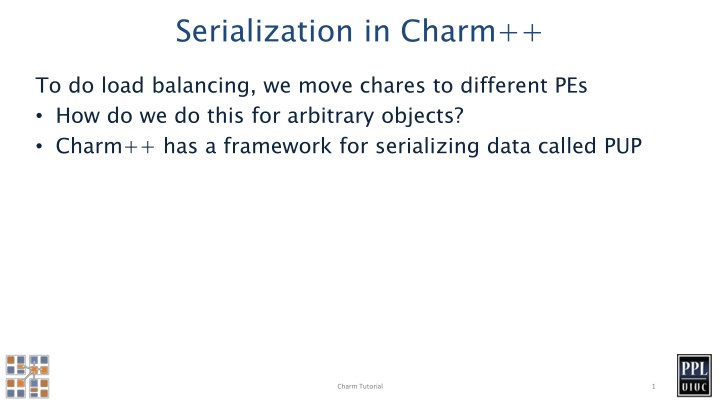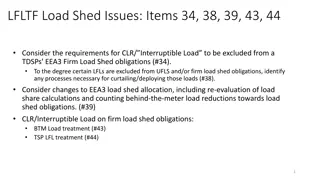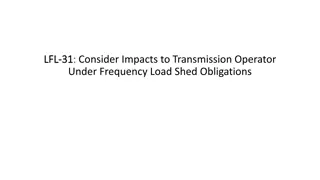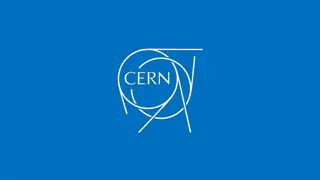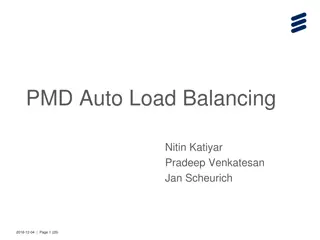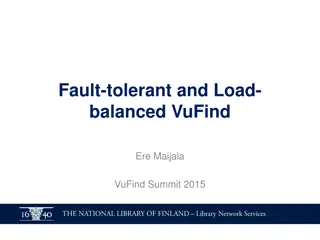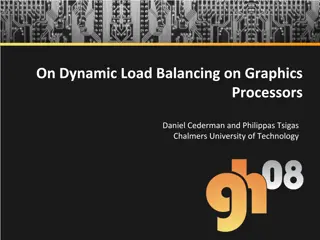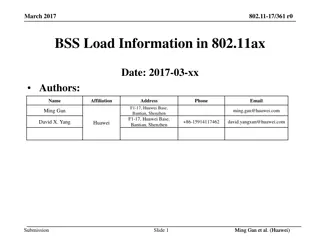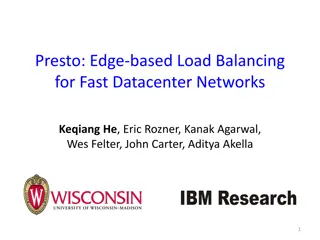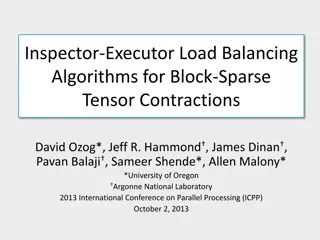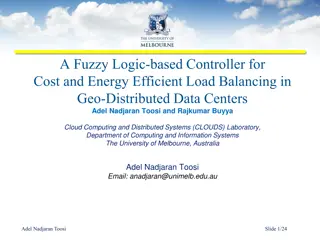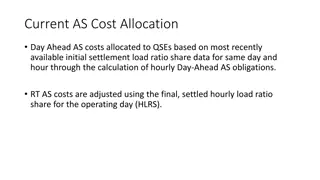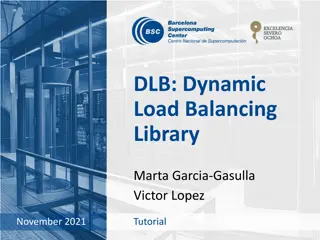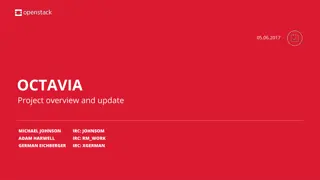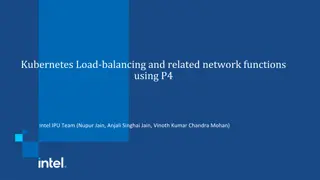Serialization in Charm++: Load Balancing with PUP
Charm++ offers a framework for serializing data called PUP to facilitate load balancing by moving chares to different processing elements. PUP, standing for Pack and Unpack, makes chares serializable and enables their transportation between memory, disk, or processors. This tutorial covers the use of PUP for object movement, including advanced PUP routines and applicability to various data types in Charm++.
Download Presentation

Please find below an Image/Link to download the presentation.
The content on the website is provided AS IS for your information and personal use only. It may not be sold, licensed, or shared on other websites without obtaining consent from the author.If you encounter any issues during the download, it is possible that the publisher has removed the file from their server.
You are allowed to download the files provided on this website for personal or commercial use, subject to the condition that they are used lawfully. All files are the property of their respective owners.
The content on the website is provided AS IS for your information and personal use only. It may not be sold, licensed, or shared on other websites without obtaining consent from the author.
E N D
Presentation Transcript
Serialization in Charm++ To do load balancing, we move chares to different PEs How do we do this for arbitrary objects? Charm++ has a framework for serializing data called PUP Charm Tutorial 1
PUP What is PUP? P Pack and U Unpack With PUP, chares become serializable and can be transported to memory, disk, or another processor Used in dynamic load balancing framework for object movement Charm Tutorial 2
Hello World with Chares class MyChare : public Cbase_MyChare { int a; float b; char c; entry localArray[LOCAL_SIZE]; }; void pup(PUP::er &p) { p | a; p | b; p | c; p(localArray, LOCAL_SIZE); } Charm Tutorial 3
Writing an Advanced PUP Routine class MyChare : public Cbase_MyChare { int heapArraySize; float* heapArray; MyClass* pointer; }; void pup(PUP::er &p) { p | headArraySize; if (p.isUnpacking()) { heapArray = new float[heapArraySize]; } p(heapArray, heapArraySize); bool isNull = !pointer; p | isNull; if (!isNull) { if (p.isUnpacking()) { pointer = new MyClass(); } p | *pointer; }} Charm Tutorial 4
PUP: Applicability PUP works on: A simple type, e.g. char, short, int, long, float, or double Any object with a PUP method defined STL containers (#include pup_stl.h) Some others, see Section 6 of Charm++ manual for details Charm Tutorial 5
PUP Uses Moving objects for load balancing Marshalling user defined data types When using a type you define as a parameter for an entry method Type has to be serialized to go over network, uses PUP for this Can add PUP to any class, doesn t have to be a chare Serializing for storage Charm Tutorial 6
Split Execution: Checkpoint Restart Can use to stop execution and resume later The job runs for 5 hours, then will continue in new allocation another day! We can use PUP for this! Instead of migrating to another PE, just migrate to disk Charm Tutorial 7
How to Enable Split Execution Call to checkpoint the application is made in the main chare at a synchronization point log_path is file system path for checkpoint Callback cb called when checkpoint (or restart) is done For restart, user needs to provide argument +restart and path of checkpoint file at runtime CkCallback cb (CkIndex_Hello:SayHi(), helloProxy); CkStartCheckpoint( log_path , cb); shell> ./charmrun hello +p4 +restart log_path Charm Tutorial 8
